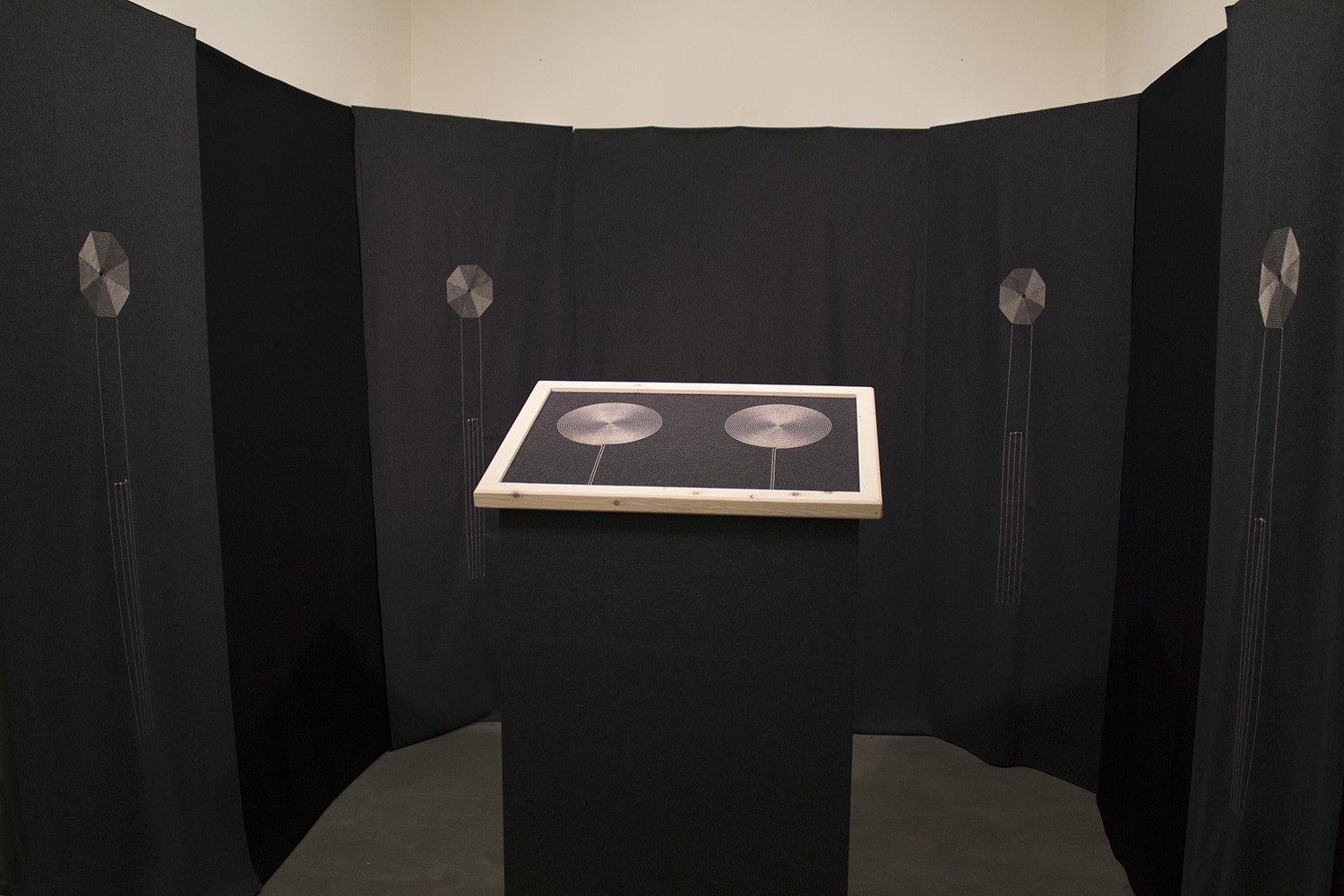See video documentation here
Download catalogue essay by Laurie Sévigny-Couture
Sonic Textiles
Ryth Kesselring is researching “sound” textiles. In her installation Sonic Textiles, she has stitched coils of silver threads onto felted fabric to create four-textile speakers and two textile microphones. Her research links sound and the textile object itself by using sounds from the making. In this particular installation, Kesselring is blending the rhythms of an embroidery machine to the human voice. Using those different sounds, Kesselring puts in relation to textile labour and its materiality and tempt to connect to the tradition of textile workers singing while doing their needlework.
The viewer can interact with the piece in two different ways; their voice and/or their shadow. Each of the four textile speakers has a light sensor embroidered to trigger and modulate the different sounds. The microphones record voices that are then played back through the textile speakers which adds to the unusual composition. While blending the textile object and its sonic memories to body movements and ancient textile crafts, Sonic Textiles is interlacing tradition and personal experimentation. The sonic responses are like echoes of the past, deconstructed rhythms of traditional fibre arts connected to contemporary practices.
About the Artist
Born in Switzerland, Ryth Kesselring moved to Québec during her childhood. She is an MFA candidate in Fibres and Material Practices at Concordia University. She was part of the studio subTela as a research assistant and did work on electronics and embroideries for smart textiles. Her research focuses on sound, textiles and the rhythms of craftsmanship as imprints of the textile memories. She is a recipient of several research grants and obtained the Milieux Institute for Arts, Culture and Technology undergraduate fellowship 2017-2018. Kesselring is also active as a studio art teacher in elementary and high schools. Her work has been shown in Canada, Spain, Switzerland, France and Iceland.

